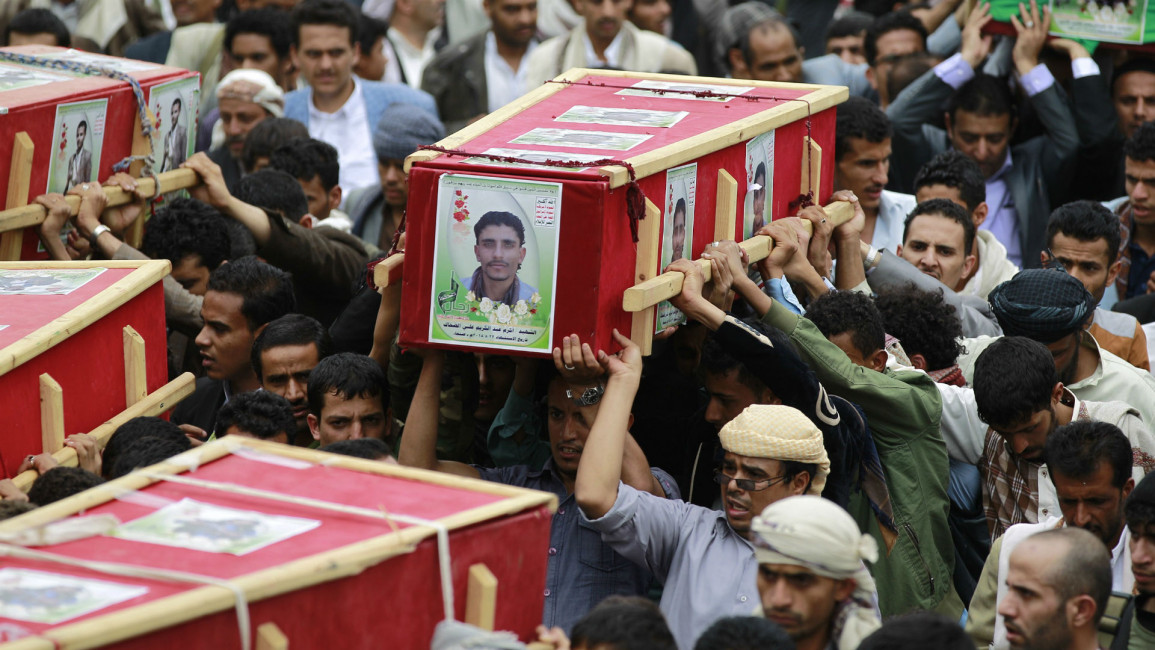
Saudi's contradictory role in Yemen
Yemen is on fire and has been for over two months.
After weeks of heavy bombing, devastation, suffering, despair and short-lived ceasefires, the UN has announced that warring Yemeni parties are to hold talks in Geneva with a view to ending hostilities.
The talks are the result of extensive consultations led by Ismail Ould Cheikh Ahmed, the UN special envoy to Yemen. On 21 May 2015 Saudi-led coalition shells killed five Ethiopian refugees when they landed on an international aid office. Are the UN sponsored talks at risk?
In light of the military asymmetry which could not be greater, the Saudi led coalition's military campaign which has sought to restore President Hadi, in exile in Saudi, to power has caused the deaths of at least 1,850 people, in addition to the fifteen Houtis who lost their lives in air strikes on 19 March 2015.
UN secretary-general, Ban Ki-moon, who demanded fighting stops, said the talks, that were scheduled to take place on 28 May but have since been postponed, are intended to "restore momentum towards a Yemeni-led political transition process", bringing a measure of respite to a deepening humanitarian crisis.
This announcement came on the back of a conference organised by the Yemeni government on 19 May 2015, called Saving Yemen and Building Federal State which took place over three days and concluded in Riyadh. The conference ended in a forward-looking final declaration which principally underscored the federal nature of a future Yemeni state.
It is an irony of great magnitude, is it not, that the Saudi coalition has not only been bombing Yemen, but it has also pledged to meet the $274 UN humanitarian appeal for Yemen, and to host the Save Yemen Conference.
Is the face-off between Saudi, an oil rich country and Yemen, one of the poorest countries in the region, a foregone conclusion?
| Has Saudi exported conflict to Yemen to deflect attention from its own internal affairs? |
Has Saudi exported conflict to Yemen to deflect attention from its own internal affairs at a time of a monarchical power transition with the January ascent of the new King Salman bin Abdulaziz Al Saud?
While Yemen is being pounded by the Saudi coalition forces, the Saudi Arabia remains untouched, with life and business proceeding as usual.
Is Saudi which is not known for being a defender of human rights or freedom of speech preventing expressions of protest against the war on Yemen? The protests of 2011 saw the arrest of a great number of people as well as the sentencing to death of a prominent Shia cleric.
The great fight for regional positioning continues between two rivalling Muslim powers, the Saudis and the Iranians. Political Islam has seemingly splintered into two opposing camps, fuelling sectarian tensions within and beyond Yemen.
In Yemen the Saudi-led Sunni allies are linked to Hadi. They are militarily superior, armed and supported by the US and other European allies. In opposition is the Shia Houthi fighters, militarily inferior, and who are allegedly supported by Iran.
In a move to alleviate the dire humanitarian crisis in Yemen Iran has announced that one of its vessels is en route to Hodaida in Yemen, a port under Houthi control. The ship contains 2,500 tonnes of food as well as medical supplies.
Hossein Amir Abdollahian, Iran's Deputy Foreign Minister, said: "We have decided to dock our ship in Djibouti so the UN inspection protocol can take place."
Agreeing to UN inspections averts the prospect of a confrontation with Saudi-led coalition forces which have imposed inspections on all vessels sailing towards Yemen. The coalition is intent on stopping weapons reaching the Houthi rebels.



